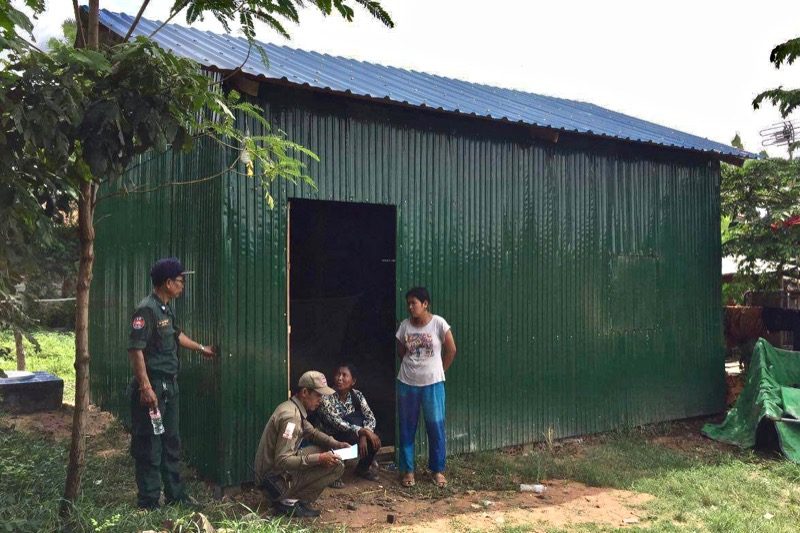Authorities in Siem Reap province have stopped negotiating with hundreds of families who recently built homes and shops illegally inside the Angkor Archaeological Park, and Defense Minister Tea Banh said they would start razing the structures without their consent.
Local authorities say more than 500 homes and shophouses went up in Siem Reap City’s Nokor Thom and Kokchak communes in the weeks before the June 4 commune elections and that they have since been urging the owners to tear them down, with little success.

At a meeting in the city on Tuesday with General Banh, a lawmaker for the ruling CPP who also heads the party’s provincial working group, they decided to stop asking.
“It was decided that we will take action to remove all the illegal construction, but we have not fixed the exact dates for the removals,” deputy provincial governor Ly Samrith, who attended the meeting, said on Wednesday.
“We tried to talk to those people and ask them to remove the illegal construction themselves many times, but they did not listen to us,” he said. “So now the final step for our authorities is to take action and remove all the illegal houses.”
Gen. Banh said protests would not be tolerated.
“We will not allow the illegal construction to stay any longer because it will pose a risk to the Angkor heritage area,” he said. “We will arrest anyone if they protest against the authorities’ actions and their activities violate the law.”
Long Kosal, spokesman for the Apsara Authority, the government body that manages the park, said a joint commission had already been assembled to deal with the problem and included the heads of the provincial and military police.
“I think the people will not protest against our removal actions because they might understand clearly that their houses were constructed inside Angkor Park,” he said.
Rous Samnang, who built a home in Kokchak commune just before the elections, said he and his neighbors would protest if the authorities tried to raze their homes.
“[I]t would affect our standard of living, because most of the villagers took out loans from banks and they will lose their shelter during the rainy season,” he said.
Mr. Samnang said he was worried that the authorities might react to their protest with violence, but warned that the villagers would respond in kind.
“The people will lose their patience and they will use violence in response to the authorities,” he said.
The new arrivals also hold the authorities responsible for their predicament, claiming they knowingly let them build and move in before the elections and made no objections. Some of them believe the authorities chose to look the other way in a bid to secure, or not lose, votes for the ruling CPP.
The Apsara Authority claims the new arrivals were told to stop construction but continued building their homes and shops anyway while the authorities were preoccupied with other work.
On Wednesday, however, Mr. Samrith, the deputy provincial governor, contradicted the Apsara Authority’s account, stating that no attempt was made to stop the new arrivals.
“We never banned those people while they were building houses in the park because our authorities were understanding,” he said.




